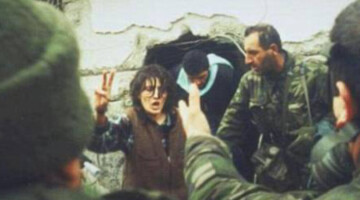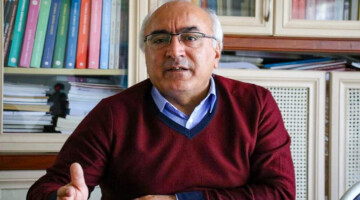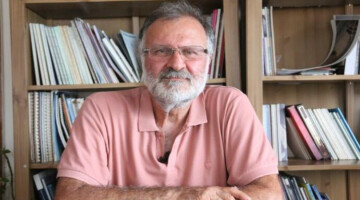One of the relatives of the 33-Bullet Massacre victims, lawyer Jiyan Özkaplan, stated that 79 years have passed since the massacre, but the bodies are still not delivered. The mastermind of the massacre, Army Commander General Mustafa Muğlalı, is praised as a hero soldier with his busts and name on the streets. “The attitude of the state increases our anger as much as the massacre,” the lawyer said.
33 villagers who were taken to the Sefo creek in the Özalp district of Van were executed on July 28, 1943, at the instruction of General Mustafa Muğlalı. 79 years have passed since the incident known as 'the 33-Bullet massacre', but the state still regards Muğlalı as a hero. A Turkish military barracks in Özalp was named after Muğlalı in 2004. Following public backlash, his name was removed from the military post in 2010, but a street in Muğla city was named Muğlalı Street. There is also a bust of Muğlalı in the garden of the Turkish General Staff’s headquarters.
Lawyer Jiyan Özkaplan, one of the relatives of the victims, spoke to ANF on the anniversary of the massacre.
Özkaplan pointed out that the state should confront the massacre and apologize to the families. “Courts rule according to political motives in Turkey. This situation has not changed throughout the history of the country. Nothing has changed from Zîlan to the Madımak and Roboski massacres. No confrontation, no shame. The perpetrators of these massacres are either unknown or heroes,” the lawyer said.
SEFO CREEK STILL BANNED
The lawyer emphasized that the state's mentality has not changed at all when it comes to the Kurds and the anti-Kurdish policies have remained pervasive by successive governments of the country. “The massacre was first presented as an ‘armed conflict’. A report claimed that those who were executed had attacked Turkish soldiers and they were killed as a result of an armed conflict. After the executions, Sefo Creek was besieged by soldiers to cover the evidence. No one has been allowed to enter the area ever since. This is still the case,” she said.
A TRAUMATIC SITUATION
Lawyer Özkaplan recalled that the name Muğlalı given to the barracks in Özalp district was removed as a result of their struggle with the relatives of 33 people. “However, a street in Muğla is named after him. This is a traumatic situation and annoying,” she said.
79 YEARS OF NEVER-ENDING MOURNING
“Massacres leave painful marks on collective memory. The never-ending mourning and pain and the demand for confrontation are still as fresh and alive as they used to be in the past. The 33-Bullet massacre, like all massacres, causes pain and anger. 79 years have passed, but still the bodies have not been delivered. The perpetrator is not considered as a real murderer but is venerated as a heroic soldier with his bust and name on the streets. The Republic of Turkey does not confront the past. The attitude of the state increases our anger as much as the massacre itself,” the lawyer concluded.














